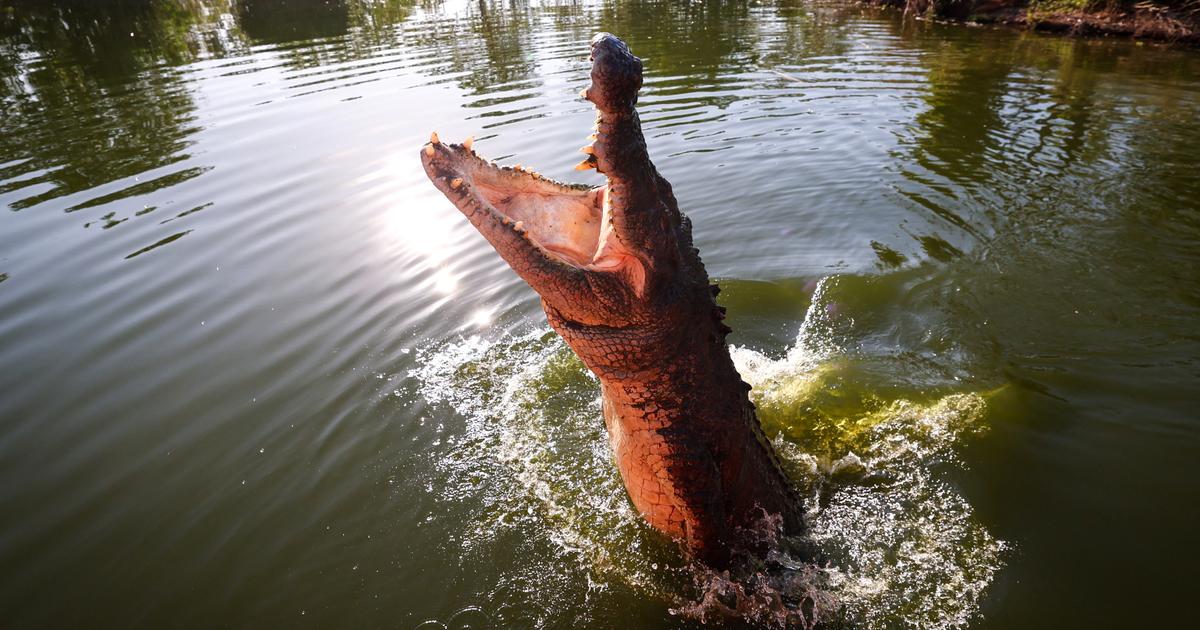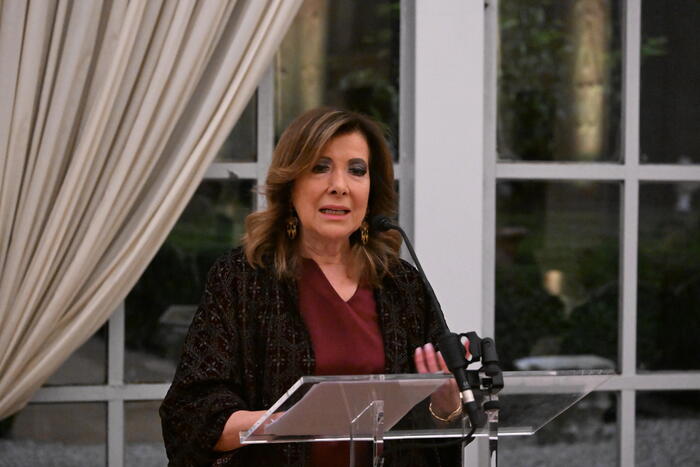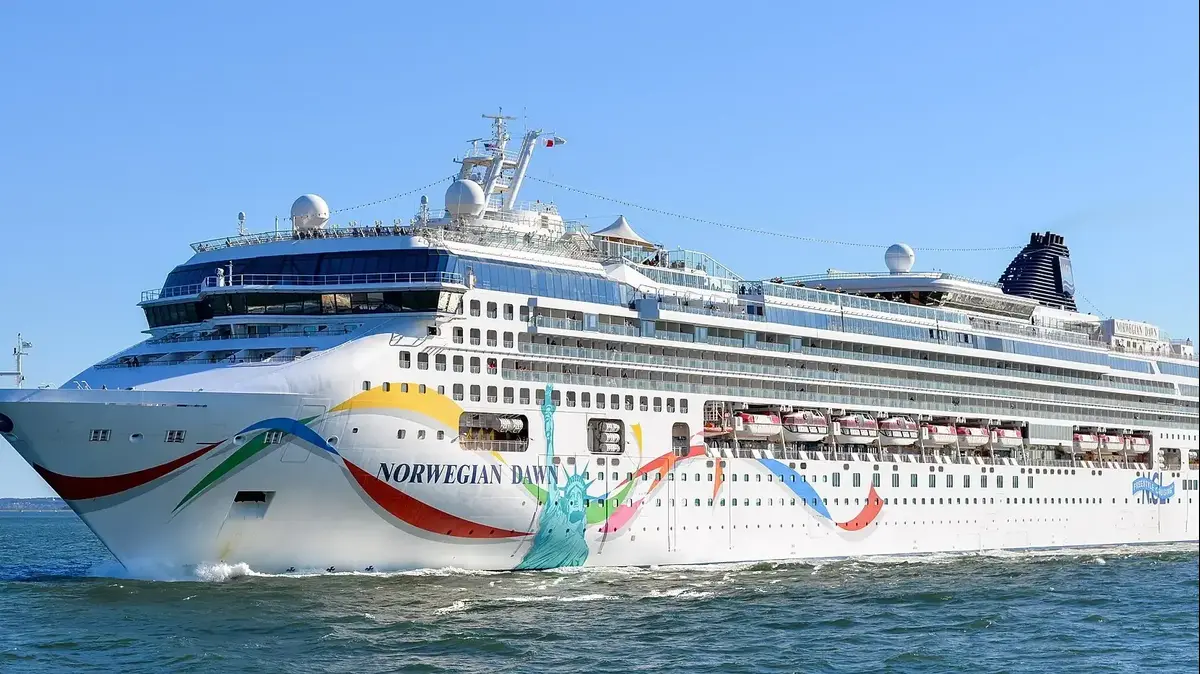Enlarge image
New luxury facilities for the wealthy are emerging all over the island
Photo: Fabien Dubessay / DER SPIEGEL
At the next table, an elderly couple wants to know if there is an ambulance nearby, just in case.
"Yes, there is," says realtor Mridula Shembhoo, pointing to the nearby shopping and health center.
Shembhoo has emerald status, the highest award one can get from real estate giant Pam Golding - for a particularly large number of signed contracts.
It's going well in Mauritius, really well.
The sales talks take place in the clubhouse, surrounded by the green of the golf course, outside the golf carts whir softly by.
You don't have to be ashamed of your wealth here at the Mont Choisy Golf Estate, but rather of a bad handicap.
A few meters from the clubhouse is a villa for sale for 4.5 million euros - with five bedrooms and a lush pool, behind the garden the flags of the 18-hole course are waving.
But most of the houses and properties have long been off the market.
The third expansion is already being planned, here too half of the properties have already been reserved or sold, although construction has not even begun.
Olga and Chris are among the customers from the very beginning. You bought not one but five properties in Mauritius, including an apartment in Mont Choisy. When she was in her late 40s, the entrepreneur Olga retired, now she and her partner are spending their retirement on the island. "We love it, the weather, the friendly people, the beach, everything is wonderful," says Olga, who used to run various companies. And her partner Chris has identified another advantage: “In France, the state collects inheritance taxes of up to 60 percent when I bequeath something. Not a cent in Mauritius. That convinced us. "
In fact, the tropical island is a sunny and financial paradise: no inheritance tax, no capital gains tax, income and corporation tax formally at 15 percent, and thanks to many reliefs, usually significantly less.
Jonathan Tagg is project manager in Mont Choisy, he is responsible for the real estate portfolio - and has secured a villa in the complex himself.
Tagg smiles a big smile, then says, "People hate taxes."
The average prospect is around 60 years old, he says. Many come because of the good weather and the solid infrastructure. And taxes are also an important reason for choosing Mauritius as a location. "We also have a lot of investors who buy something to get their residence permit for the island," he reveals. Because anyone who invests at least 375,000 US dollars gets a golden visa - a settlement permit and thus all the benefits of the Mauritian tax system.
And many are coming, and the boom is not only felt in Mont Choisy.
All over the island new facilities are being built for the super-rich, and more skyscrapers are being built in the financial district.
A recently published study predicts that the number of affluent newcomers will increase by 80 percent in the coming years.
"I think there will be a lot more," says Jonathan Tagg.
Thanks to the financially strong investors, Mauritius has already become the richest country in Africa - measured in terms of gross domestic product per capita.
The island state has undergone a remarkable development in the past few decades: As recently as the 1980s, the economy was almost exclusively agricultural; Within 30 years the country changed from an agricultural state to a modern financial center. A rapid change, which not everyone could follow and which turned Mauritius into a divided island. There is now free health care, a functioning pension system and a minimum wage. But while the wealthy from the west benefit from the low taxes, thousands of residents, mostly blacks, still live in poverty. For them, prosperity only exists on paper, in the bank accounts of newcomers from abroad.
The investors are primarily focusing on the African continent. Because Mauritius is an ideal location to do business from here on the mainland. This is due to a large number of double taxation agreements. In other words, if you pay taxes in Mauritius, you don't have to do it again in another African country. Since most countries in sub-Saharan Africa charge significantly higher corporate taxes, this is a tempting deal.
"Mauritius positions itself as a kind of getaway car for tax evaders in Africa," says Leonard Wanyama of the Tax Justice Network Africa. According to estimates by the organization, African countries lose 17 billion euros a year through tax tricks, and not just with Mauritius. But more and more countries no longer want to accept that. According to the Tax Justice Network, Rwanda, Senegal, South Africa and Lesotho have tried to renegotiate such double taxation agreements in order to suffer fewer tax losses in the future. The German government recently amended its agreement with Mauritius.
There is also growing pressure from other sources: In Rome, for example, the G20 states announced a global minimum tax in October, which should be 15 percent for large corporations. Some experts anticipate that low-tax countries like Mauritius will have more difficult times in the future. "We are currently examining how this will affect Mauritius," says Mathieu Mandeng, CEO of the major bank Standard Chartered in Mauritius.
These developments are also causing a certain unrest in the Mauritian government, which is trying with all its might to fight its reputation as a dubious financial paradise. For example, she commissioned a study that examines all the advantages of Mauritius as a location for investors in Africa. The result, hardly surprising: the other states would have much more benefit than harm. "We adhere to all international rules," says Mahen Kumar Seeruttun, Minister for Financial Services, in an interview with SPIEGEL, "we are not a tax haven."
Nadonna Beeharry is not aware of any tax breaks. She lives directly on the beach, first row, with a view of the turquoise-green water. However, her house is not a villa, but a shed made of rusted corrugated iron, in which she lives with her husband and three children. "I don't feel that we are a rich country," says Beeharry. “The government doesn't see the reality. We will be forgotten, ”she says.
She used to work in a textile factory, now she helps her husband fish and does odd jobs as a gardener for wealthy households. "It breaks my heart. Sometimes I take my children with me and they then ask me: When do we have a real house? My son is bullied at school for being poor, ”Beeharry says. She was born into poverty, she says. There is no way out, especially since the income from traditional fishing is decreasing.
This is also confirmed by Jangi Rajeev, the district head of the region. There are currently several problems converging, because the traditional industries on the island are all on the ground: The fishery is only slowly recovering from a tanker accident that covered parts of the coast with an oil spill last year. Sugar cane cultivation is suffering from the lower prices and the tourism industry is still suffering from the pandemic. "This is unnecessary suffering, we are a rich country, but government support does not reach everyone," says Rajeev.
In the village of Mahebourg, a group of men are sitting under a mighty tree, they are playing board games.
The glittering, sophisticated Mauritius is far away here.
Paul Hung Hong, 68, is one of them.
The chairman of the local fishermen's union smokes a lot and has seen the change in Mauritius.
“There wasn't anything here in the 1970s, so I became a fisherman.
But it gets more difficult every year, mainly because of pollution and climate change.
We catch 70 percent less than before. "
Hung Hong also thinks that wealth is not distributed fairly, on the contrary: “Because more and more rich people come, everything is becoming more expensive here.
Our children can no longer pay the rents, ”he says.
Olga and Chris in the luxury district of Mont Choisy don't have this problem; Mauritius is paradise for them.
"That was love at first sight," enthuses the ex-entrepreneur.
The operators are currently building a riding stables next to the golf course.
In between there should be a »Heritage Forest«, a kind of image of the untouched traditional Mauritius.
But this is very far away.
This contribution is part of the Global Society project
Expand areaWhat is the Global Society project?
Reporters from
Asia, Africa, Latin America and Europe
report under the title “Global Society”
- on injustices in a globalized world, socio-political challenges and sustainable development.
The reports, analyzes, photo series, videos and podcasts appear in a separate section in SPIEGEL's international department.
The project is long-term and is supported by the Bill & Melinda Gates Foundation (BMGF).
A detailed FAQ with questions and answers about the project can be found here.
AreaWhat does the funding look like in concrete terms?
The Bill & Melinda Gates Foundation (BMGF) has been supporting the project since 2019 for an initial three years with a total of around 2.3 million euros - around 760,000 euros per year.
In 2021, the project was extended by almost three and a half years until spring 2025 on the same terms.
Are the journalistic content independent of the foundation?
Yes.
The editorial content is created without the influence of the Gates Foundation.
Do other media have similar projects?
Yes.
Major European media outlets such as "The Guardian" and "El País" have set up similar sections on their news sites with "Global Development" and "Planeta Futuro" with the support of the Gates Foundation.
Have there already been similar projects at SPIEGEL?
In the past few years, SPIEGEL has already implemented two projects with the European Journalism Center (EJC) and the support of the Bill & Melinda Gates Foundation: the “Expedition ÜberMorgen” on global sustainability goals and the journalistic refugee project “The New Arrivals” within the framework several award-winning multimedia reports on the topics of migration and displacement have been produced.
Where can I find all publications on global society?
The pieces can be found at SPIEGEL on the topic Global Society.









